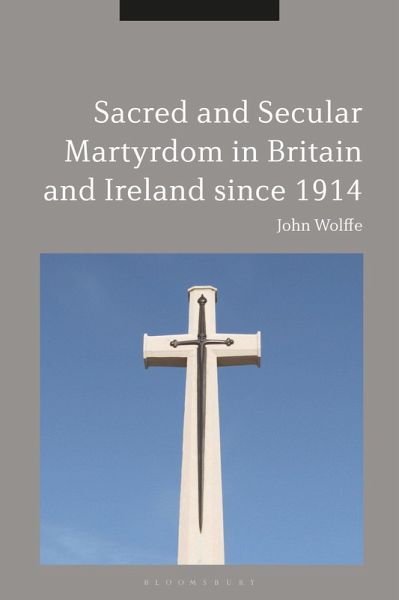
Sacred and Secular Martyrdom in Britain and Ireland since 1914 (eBook, ePUB)

PAYBACK Punkte
46 °P sammeln!
During and immediately after the First World War, there was a merging of Christian and nationalist traditions of martyrdom, expressed in the design of war cemeteries and war memorials, and the state funeral of the Unknown Warrior in 1920. John Wolffe explores the subsequent development of these traditions of 'sacred' and 'secular' martyrdom, analysing the ways in which they operated - sometimes in parallel, sometimes merged together and sometimes in conflict with each other. Particular topics explored include the Protestant commemoration of Marian and missionary martyrs, and the Roman Catholic...
During and immediately after the First World War, there was a merging of Christian and nationalist traditions of martyrdom, expressed in the design of war cemeteries and war memorials, and the state funeral of the Unknown Warrior in 1920. John Wolffe explores the subsequent development of these traditions of 'sacred' and 'secular' martyrdom, analysing the ways in which they operated - sometimes in parallel, sometimes merged together and sometimes in conflict with each other. Particular topics explored include the Protestant commemoration of Marian and missionary martyrs, and the Roman Catholic campaign for the canonization of the 'saints and martyrs of England'. Secular martyrdom is discussed in relation to military conflicts especially the Second World War and the Falklands. In Ireland there was a particularly persistent merging of sacred and secular martyrdom in the wake of the Easter Rising of 1916 although by the time of the Northern Ireland 'Troubles' in the later twentieth-century these traditions diverged. In covering these themes, the book also offers historical and comparative context for understanding present-day acts of martyrdom in the form of suicide attacks.



